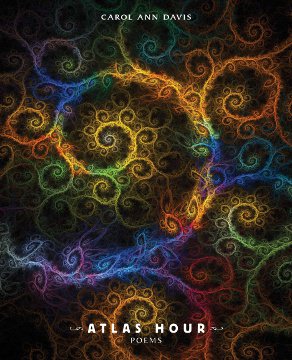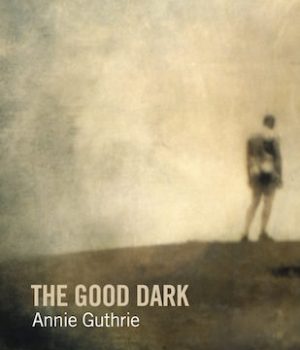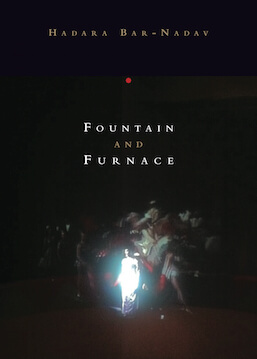Atlas Hour
by Carol Ann Davis
$19.95
“This triangular figure — a body or shape, a lens or opening, and the ineffable — informs every startling poem in Atlas Hour, whether its subject is a painting, a domestic scenario, or a motion of atonement, redemption, and forgiveness.”
— Lisa Russ Spaar, The Los Angeles Review of Books
Format: paperback
Out of stock
This triangular figure — a body or shape, a lens or opening, and the ineffable — informs every startling poem in Atlas Hour, whether its subject is a painting, a domestic scenario, or a motion of atonement, redemption, and forgiveness.
— Lisa Russ Spaar, The Los Angeles Review of Books
Davis’s poems achieve radiant feeling by means of ekphrastic vision. The trigger, whatever tapestry, drawing, or painting she references, hardly matters. Instead, Davis foregrounds a tender, authentic intimacy shared by her speaker and listener.
— David Roderick, Blackbird
Davis maintains a deep engagement with, and investigation of, the world around her. She is able to immerse herself in the newness of things by seeing them through children’s eyes, and describes what she sees with a lovely freshness and excitement.
— Chloe Martinez, The Rumpus
Atlas Hour is a collection of poem-maps whose cosmology embraces the works and lives of the painters Vermeer and Mark Rothko, Fra Angelico and Gerhard Richter, the anonymous child-artists of the Nazis’ Terezin transit camp and the poet’s own children. Sifting and selecting moments in history and in the annals of art, these poems bring the stuff of everyday into relationship with the great mysteries of existence: what we believe, who we love, whom and what we choose to hurt or leave unharmed.
Advance Praise:
Carol Ann Davis’s Atlas Hour is formally inventive, visually striking, and fiercely intelligent. But it’s so much more than that, too: a thoughtful meditation on how family, history, and aesthetic beauty might help us understand our position in a complicated world filled with moments of joy, misgiving, and suffering. The minds at work in these finely wrought poems are at once intricate and expansive, reaching finally through art toward the unknowable and divine. This is an ambitious and riveting collection.
—Kevin Prufer
In Atlas Hour, Carol Ann Davis works her material with a jeweler’s steady hand, honoring the sensuous definition of surfaces as well as the more elusive claims of desire, sorrow and the gratitude of living. When outer and inner are drawn into balance—and they are, in poem after poem—there comes a catch in the breath, the sense of a rightness apprehended.
—Sven Birkerts, author of The Gutenberg Elegies: The Fate of Reading in an Electronic World
What we admire in Carol Ann Davis’s new collection is akin to what we admire in Dickinson—a quality of ardor as the poet struggles toward grace, a grace that is sought in both the domestic and in the ineffable. We are thus offered deeply acute poems about the experience of motherhood as well as searching poems of ekphrasis. Again and again, Davis goes in search of the transcendent moment, of those times of ‘belief and unbelief changing places.’ Atlas Hour is a resonant and haunting collection by a poet of the first order.
—David Wojahn
Additional information
| Weight | .4 lbs |
|---|---|
| Dimensions | 6 × .5 × 9 in |
from The Birth Hour
So close to dawn. So near
the snowman with the orange feet,
proximate to windstorms
and a snow’s arrival.
So near the cornea
the sky is a shed tear. The feather
pasted into the memory book, its name
forgotten, like yours, like mine. The
hair’s breath.
So as to be
within earshot. So as not to be heard. Put on these quiet socks,
use this, your inside voice. What did your father say?
Quiet as a church mouse. What did my mother?
Bedroom eyes.






